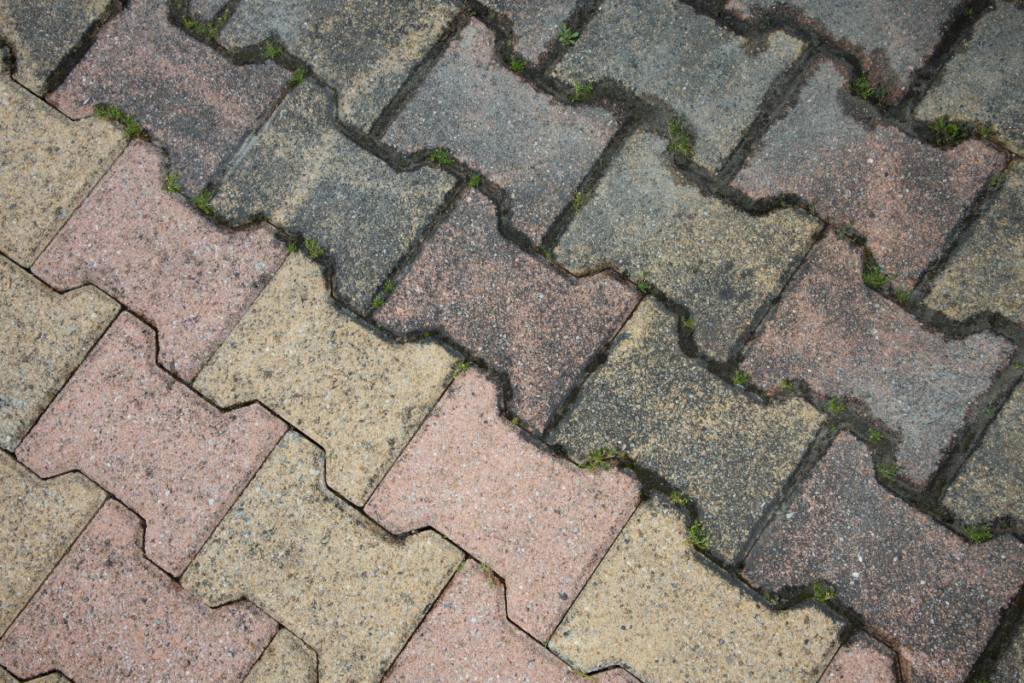Does sealing brick pavers make them slick? Many homeowners struggle with this question when considering sealing their brick pavers. Our team at The Pressure Cleaning Guys feels that answering this issue is a lot more important than people give it credit. After all, a slippery surface is hazardous and can lead to slips, falls, and accidents.
Pavers can survive extreme weather by sealing their pores, securing their joints, and shielding themselves from dirt and UV rays. This assures that your driveway, pathways, or patios will last for many years.
Brick paver sealing seems like a pretty quick and simple task that practically anybody can complete. In reality, sealing a hardscape surface in a way that will be protected and enhanced for years to come requires the proper skills, experience, and tools.
When you need professional brick sealing specialists, get in touch with The Pressure Cleaning Guys. We are recognized as Perth’s top high-pressure cleaning company.
Paver Sealer Selection
The type of sealer and application technique you select will determine the best paver sealers for you. With the right sealers and application processes, the traction of your brick pavers should not vary noticeably.
The traction of your brick-covered hardscape will be comparable to that of a seal-coated driveway or parking lot. There will be no difference in traction if you walk on your brick pavers in dry conditions.
The sealed brick pavers will have a similar feel to a wet gym floor. When you walk over them, your shoes might produce noises. Ever wonder how that sound is produced?
This squeaking sound is caused by the presence of water between your shoes and the acrylic sealer. The sealed pavers are not any more slippery as a result than other surfaces. Brick pavers have sufficient pores and texture to prevent the sealer from creating a continuous surface over them.
The Different Types of Brick Pavers
By now, you should have a pretty good idea of what types of sealers can make your brick pavers more slippery. Because of their texture and state, some brick surfaces can become highly slippery.
For example, damp cast brick pavers have a smooth surface and are extremely dense, making them rather slippery when wet. To keep these brick pavers from becoming slick in damp circumstances, they need special maintenance.
These pavers require non-film-forming penetrating sealers. In other words, the right sealer materials might affect how slippery brick pavers become when wet.
The Proper Sealer and Professional Technique
It’s critical to remember that you can’t just use any sealer on brick pavers with rough, porous surfaces. Some sealers have a high solid content, which can cause the pores in brick pavers to fill up.
The brick pavers will then form a solid layer, which can become slippery in wet weather. This defect is commonly found in lower-quality sealers, which have a highly shiny surface.
Another important thing to consider is the application method. Even if the sealer is of great quality, if too much of it is applied, the upper layer will become continuous and slippery when wet.
As a result, homeowners should choose experienced professionals, such as our team at The Pressure Cleaning Guys, who understand the best sealers and the proper application procedure for preventing brick pavers from becoming slippery.
Brick paver experts can inspect your hardscape and propose the best sealant that will have little to no effect on the traction level of your brick pavers. We can reseal your hardscape with the necessary sealers and techniques to make it safer, even if your brick pavers are now sealed incorrectly.
If you’re in the Perth area, get in touch with our team at The Pressure Cleaning Guys today!




